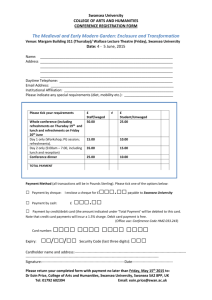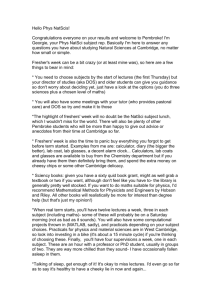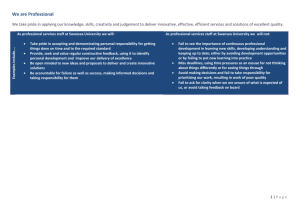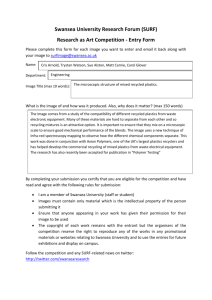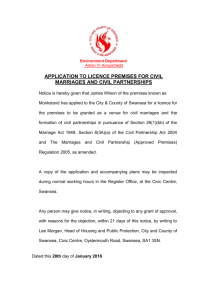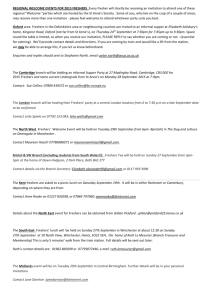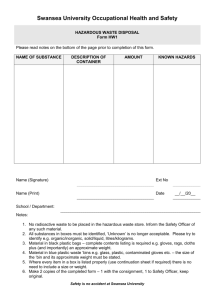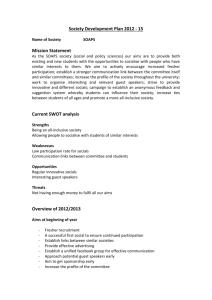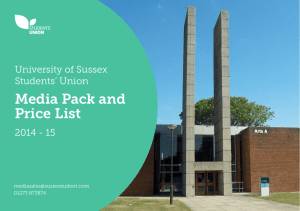From Strength to Strength – The History Society
advertisement
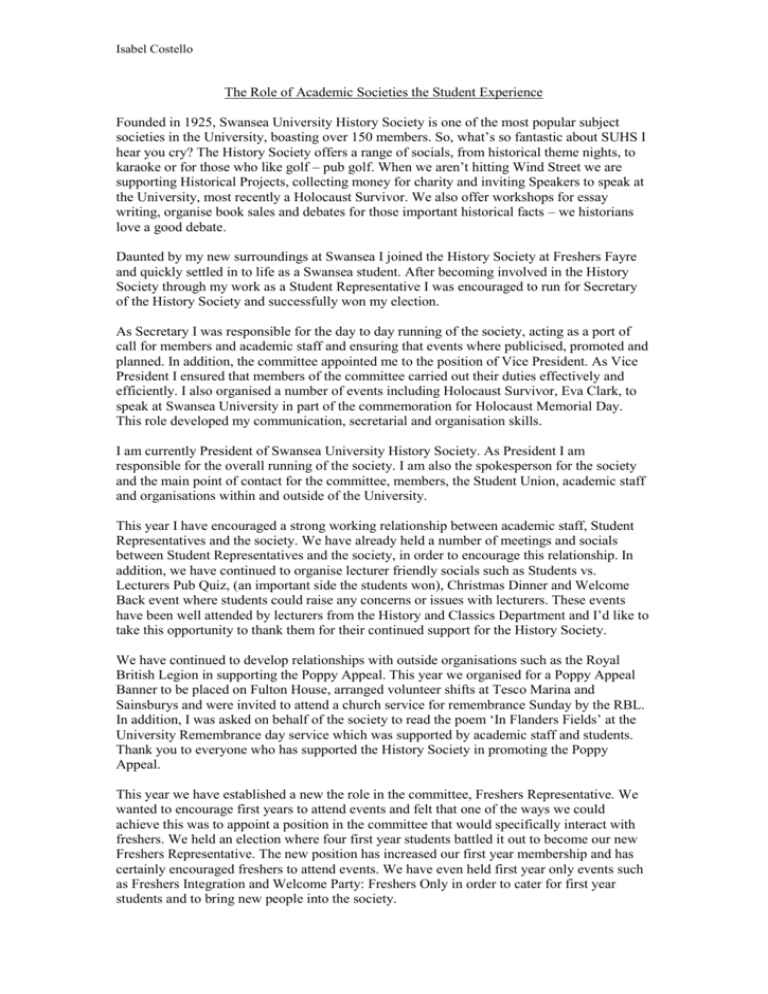
Isabel Costello The Role of Academic Societies the Student Experience Founded in 1925, Swansea University History Society is one of the most popular subject societies in the University, boasting over 150 members. So, what’s so fantastic about SUHS I hear you cry? The History Society offers a range of socials, from historical theme nights, to karaoke or for those who like golf – pub golf. When we aren’t hitting Wind Street we are supporting Historical Projects, collecting money for charity and inviting Speakers to speak at the University, most recently a Holocaust Survivor. We also offer workshops for essay writing, organise book sales and debates for those important historical facts – we historians love a good debate. Daunted by my new surroundings at Swansea I joined the History Society at Freshers Fayre and quickly settled in to life as a Swansea student. After becoming involved in the History Society through my work as a Student Representative I was encouraged to run for Secretary of the History Society and successfully won my election. As Secretary I was responsible for the day to day running of the society, acting as a port of call for members and academic staff and ensuring that events where publicised, promoted and planned. In addition, the committee appointed me to the position of Vice President. As Vice President I ensured that members of the committee carried out their duties effectively and efficiently. I also organised a number of events including Holocaust Survivor, Eva Clark, to speak at Swansea University in part of the commemoration for Holocaust Memorial Day. This role developed my communication, secretarial and organisation skills. I am currently President of Swansea University History Society. As President I am responsible for the overall running of the society. I am also the spokesperson for the society and the main point of contact for the committee, members, the Student Union, academic staff and organisations within and outside of the University. This year I have encouraged a strong working relationship between academic staff, Student Representatives and the society. We have already held a number of meetings and socials between Student Representatives and the society, in order to encourage this relationship. In addition, we have continued to organise lecturer friendly socials such as Students vs. Lecturers Pub Quiz, (an important side the students won), Christmas Dinner and Welcome Back event where students could raise any concerns or issues with lecturers. These events have been well attended by lecturers from the History and Classics Department and I’d like to take this opportunity to thank them for their continued support for the History Society. We have continued to develop relationships with outside organisations such as the Royal British Legion in supporting the Poppy Appeal. This year we organised for a Poppy Appeal Banner to be placed on Fulton House, arranged volunteer shifts at Tesco Marina and Sainsburys and were invited to attend a church service for remembrance Sunday by the RBL. In addition, I was asked on behalf of the society to read the poem ‘In Flanders Fields’ at the University Remembrance day service which was supported by academic staff and students. Thank you to everyone who has supported the History Society in promoting the Poppy Appeal. This year we have established a new the role in the committee, Freshers Representative. We wanted to encourage first years to attend events and felt that one of the ways we could achieve this was to appoint a position in the committee that would specifically interact with freshers. We held an election where four first year students battled it out to become our new Freshers Representative. The new position has increased our first year membership and has certainly encouraged freshers to attend events. We have even held first year only events such as Freshers Integration and Welcome Party: Freshers Only in order to cater for first year students and to bring new people into the society. Isabel Costello The committee and I work incredibly hard to ensure the smooth running of the society and we are lucky to receive such fantastic support from the History & Classics Department. However, the society often faces a number of challenges. One of our main challenges is ensuring that we communicate effectively with our members. So, how do you communicate with students effectively and efficiently? We use email as our main point of contact. But recently we have begun to use different forms of social media such as twitter and facebook. In addition, the society has a blog where we post detailed information about our events. But in order to remind students about events quickly, a message via social media is incredibly useful and effective. How do you get students involved in societies? Bribery. At a number of our socials we have organised incentives to encourage students to attend and engage in society events. For example we have provided free pizza, subsidised the costs of events and arranged for free academic events. This has been made possible through monetary support and grants from the Student Union. In addition, in order to encourage students to engage with the History Society, we have also organised events that cater for specific students. For example, one of our workshops Bridging the Gap between A Level and University Degree writing, supported by Dr Maurice Whitehead and Dr Chris Millington, was aimed at first year students. Whilst our Dissertation workshop, lead by the Postgraduate History Forum and Dr Jill Lewis, was aimed at second and third year students. By organising events that suit specific students the society and the History and Classics Department have successfully engaged and encouraged students to make the most of their time here at Swansea. What are the benefits of having staff involved in academic societies? By engaging, attending and supporting societies, academic staff can help to develop another method of communication, encourage student engagement and enhance the student experience. Most importantly, by attending society events, students are able to see that lecturers aren’t aliens but are human beings too. University is more than just a place for studying, it’s for socialising too. Academic societies not only encourage a sense of community spirit and sense of belonging, but they also add to the student experience resulting in happy, enthusiastic and engaged Swansea students. Thank you.
